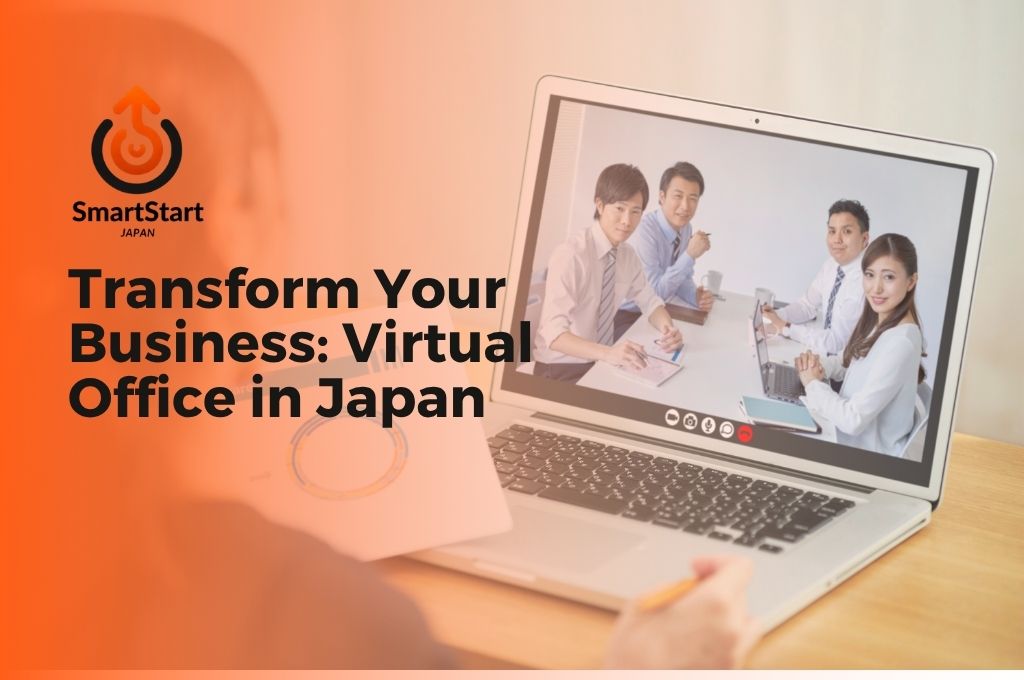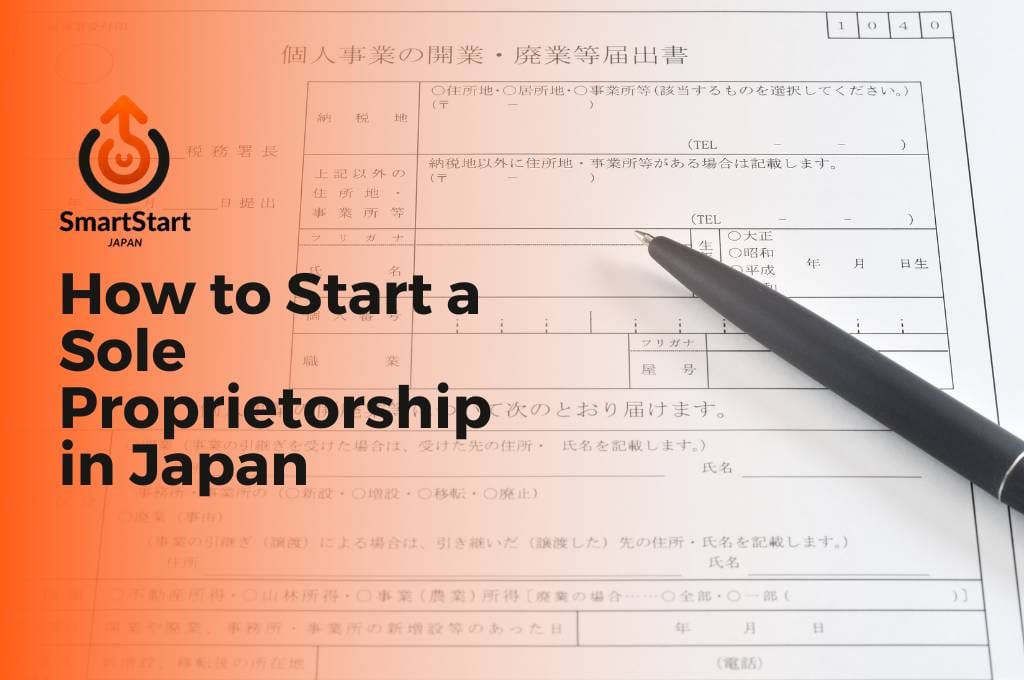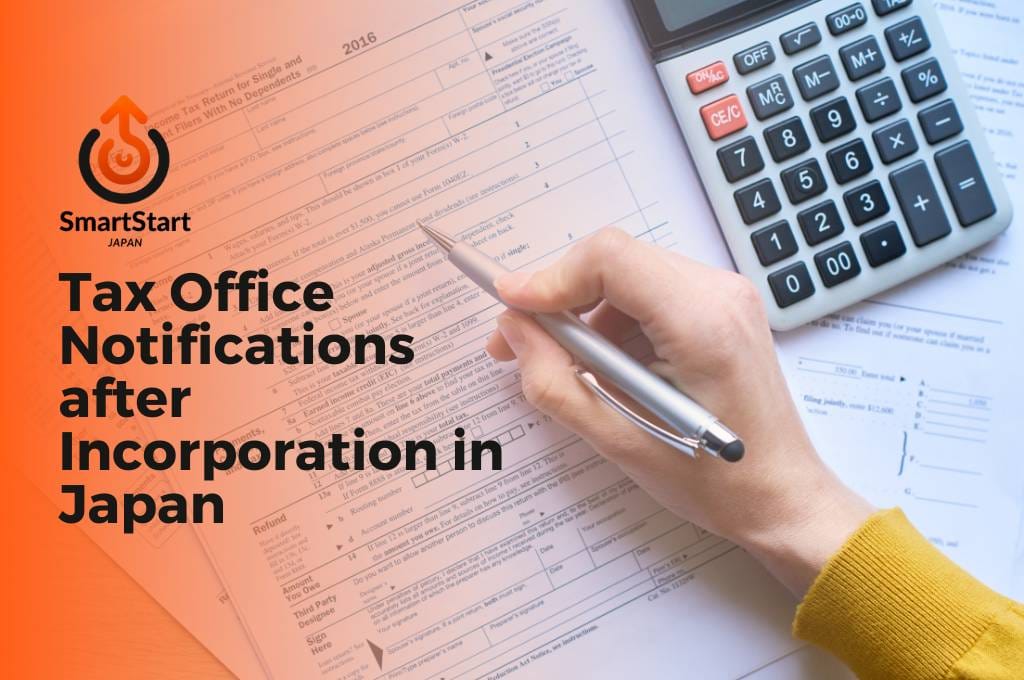Key Takeaways
- Virtual offices provide a legal business address in Japan without physical space, starting from ¥5,000/month, saving ¥5M+ in first-year costs compared to traditional offices
- Setup takes 1-2 weeks, but banking is the real challenge: expect 3-6 months for corporate account approval with virtual addresses
- Critical requirement: Verify Legal Affairs Bureau acceptance before signing, as not all providers are approved for company registration
- Cannot be used for food service, manufacturing, beauty salons, or any business requiring facility inspections
- Best for: online businesses, consultants, software companies, and foreign entrepreneurs testing the Japanese market
- Success factor: Choose providers in premium business districts (Marunouchi, Shibuya, Roppongi) with proven banking relationships
This is part of our series offering valuable tips on incorporating a business in Japan. To learn more about setting up your company and achieving your dreams, check out our SmartStart service.
”I want to start a business in Japan, but I’m not ready to commit ¥5 million to office space.”
Thousands of foreign entrepreneurs face this dilemma every year as a traditional office space in Tokyo demands ¥200,000-¥500,000 per month in rent, plus ¥2M-¥5M upfront for deposits, key money, interior work, and furniture. For an online business, consulting practice, or market-testing venture, that’s capital you don’t need to spend.
Enter the virtual office: a legal business address, mail handling, and phone services for ¥5,000-¥50,000/month. You can incorporate your company, register with tax authorities, and maintain a professional Tokyo presence—all without signing a multi-year lease or buying a single desk.
However, virtual offices aren’t for everyone. Banks scrutinize them more carefully, and due to this, certain business types legally can’t use them, which makes visa sponsorship become more complicated.
This guide covers:
- What virtual offices include and what they don’t
- Whether your business type can legally use one
- Exact setup process with realistic timelines
- Real costs at each service level
- Critical limitations around banking, visas, and licenses
(If you haven’t incorporated yet, see our Guide to Starting a Business in Japan first.)
What Is a Virtual Office in Japan?
The Basics
A virtual office isn’t an “office” at all. It’s a business address service with optional add-ons. Here’s what you actually get:
What’s Included (Always):
- A physical address accepted by the Legal Affairs Bureau for company registration
- Mail and package receiving at that address
- Forwarding service to your actual location
What’s NOT Included (Unless You Pay Extra):
- Physical workspace or desk
- Daily access to the building
- Storage space for inventory
- In-person staff (reception is remote)
Think of it as a registered agent service plus mail forwarding—not a flexible office space. If a provider’s website shows photos of beautiful offices and coworking spaces, that’s marketing. You’re paying for the address, not the amenities.
Three Service Levels Explained
Basic Package (¥5,000-¥15,000/month):
What you get:
- Registered business address (Legal Affairs Bureau approved)
- Mail receiving and forwarding (typically monthly)
- That’s it—nothing else
What’s missing:
- No phone number or answering service
- No meeting rooms
- No package notifications (you won’t know mail arrived until forwarding day)
Best for: Established businesses that already have Japan banking and just need an address for contracts or invoices. Not recommended for new incorporations.
Standard Package (¥15,000-¥30,000/month):
What you get:
- Everything in Basic, plus:
- Japanese phone number with answering service
- Mail forwarding (weekly or bi-weekly)
- Meeting room access (2-4 hours/month)
- Package arrival notifications
- Emergency mail pickup option
Best for: Most foreign entrepreneurs. This is the sweet spot—enough services to run a legitimate business without overpaying.
Premium Package (¥30,000-¥50,000/month):
What you get:
- Everything in Standard, plus:
- Bilingual receptionist with custom call scripts
- Unlimited or extended meeting room access (10+ hours/month)
- Mail scanning and digital delivery (see documents without forwarding)
- Administrative support (document handling, seal stamping)
- Priority customer service
Best for: Client-facing businesses (consulting, professional services) that need frequent meeting space and professional phone presence with Japanese clients.
Quick Comparison: Your Options
Solution | Physical Space | Monthly Cost | Setup Time | Banking Difficulty | Best For |
| Virtual Office | No | ¥5,000-¥50,000 | 1-2 weeks | Very Hard | Online businesses, market testing |
| Co-Working Space | Shared desk | ¥20,000-¥80,000 | 1-2 weeks | Hard | Need occasional workspace |
| Serviced Office | Private office | ¥80,000-¥300,000 | 2-4 weeks | Moderate | Growing teams, client meetings |
| Traditional Office | Private space | ¥200,000-¥500,000+ | 2-6 months | Easy | Established businesses, visa needs |

Who Can (and Can’t) Use a Virtual Office
Allowed Business Types
Your business model must not require physical space for operations, customer access, or regulatory inspections. This works for:
- Online retail and e-commerce
- Consulting and professional services
- Software/IT companies
- Import-export businesses (general goods)
- Marketing and advertising agencies
- Trading companies
- Financial services (if properly licensed)
- Real estate agencies (in most prefectures, verify locally)
Online businesses are ideal because customers never visit your registered address. Your inventory stays at warehouses or fulfillment centers, while the virtual office serves purely as your legal business address.
Consulting and professional services work well since you typically meet clients at their offices or in neutral spaces. The virtual office provides meeting room access when needed, plus a professional Tokyo address on your business cards—without maintaining an empty office between meetings.
Software and IT companies have perhaps the most natural fit. Development happens remotely, client communication occurs via video calls and project tools, and there’s no need for premises inspections. You get the legal address for incorporation while your team works from anywhere.
NOT Allowed
If a government agency needs to physically inspect your business premises, you cannot use a virtual office:
- Restaurants and food service need kitchen inspections. Health inspectors must verify kitchen facilities, food storage, and preparation spaces before issuing licenses. Even food delivery businesses need licensed commercial kitchens that officials can inspect.
- Beauty salons and barbershops require facility inspections to verify sanitation standards, equipment, and compliance. Officials need to see your workspace, washing facilities, and sterilization setup—a virtual office can’t satisfy this.
- Manufacturing needs production facilities for safety, environmental, and quality inspections. Regulators must see where and how production occurs, making physical space non-negotiable.
- Healthcare facilities (clinics, pharmacies)
- Childcare facilities
- Secondhand goods dealers (古物商) require police premise inspections
Special Considerations
Banking: Japanese banks are conservative about virtual offices, and this creates major obstacles. Major banks (MUFG, Mizuho, SMBC) often reject applications when they see known virtual office addresses. The concern is anti-money laundering compliance—banks worry about fraud risks with businesses lacking physical premises.
Even when approved, expect 3-6 months versus 1-2 months with physical offices. You’ll face extensive documentation requests, multiple meetings, and heightened scrutiny. Budget significantly more time than expected, as banking delays cascade into other problems: you cannot process payments, pay suppliers, or complete certain registrations without corporate accounts.
Visa Sponsorship: If you’re planning to use a Business Manager Visa, virtual offices complicate matters considerably. Immigration scrutinizes these addresses because they want evidence of genuine operations, not shell companies for residency.
In practice, you may need ¥10 million capital instead of the standard ¥5 million. Immigration also demands stronger justification for why your business genuinely doesn’t need physical space. Consult an immigration lawyer before committing visa rejections can derail your entire business plan.
Import-Export: Virtual offices work for general goods trading (clothing, accessories, merchandise). However, regulated products change everything. Importing food requires storage facilities that MHLW can inspect. Importing alcohol requires storage for liquor licenses. Handling chemicals requires inspectable storage. The distinction is critical: if you’re reselling through established channels, virtual offices work fine. If you’re storing products or need government approvals for regulated goods, you need additional facilities.
(For comprehensive import-export requirements, see our Import-Export Business Guide.)
How to Set Up Your Virtual Office: Step-by-Step
Step 1: Choose Your Provider (3-5 days)
Must verify before signing:
The critical question: Is the address accepted by the Legal Affairs Bureau for company registration? Not all virtual offices qualify, some buildings have been flagged or rejected. Ask specifically: “Has your address been used for Legal Affairs Bureau registration in the past 6 months?” Request written confirmation and examples of recent successful incorporations.
Other key questions:
What’s the mail forwarding schedule? Monthly forwarding creates problems for time-sensitive documents. Weekly or bi-weekly is more practical. Ask: How do you know when mail arrives? Can you request emergency pickups? What happens to packages between forwarding dates?
Do you provide banking documentation? When applying for corporate accounts, you’ll need letters confirming your address. Ask: “Do you provide documentation for bank applications? What format? Is there an additional fee?” Experienced providers have standardized documentation ready.
What’s the cancellation policy? Some require 3-6 months’ notice, others allow month-to-month arrangements. Clarify terms upfront to avoid unexpected costs.
Top providers in Tokyo:
- Servcorp (premium, established)
- Regus (international chain, reliable)
- Karigo (popular with Japanese startups)
- OFFICE PASS (flexible plans)
- One Stop Business Center (foreigner-friendly)
Step 2: Submit Application (1-3 days)
Required documents:
- Passport copy
- Residence card (if in Japan) or overseas address proof
- Business description (be specific—don’t just write “consulting” or “e-commerce”)
- Contact information
What happens:
Providers review applications within 1-3 business days. If approved, you’ll receive a contract and payment instructions. You’ll pay setup fees plus first month’s charges upfront before address activation.
Step 3: Address Activation (3-5 days)
You’ll receive:
The most important document is your address usage agreement—this proves to the Legal Affairs Bureau you have legitimate rights to use this address for company registration. Without it, you cannot complete incorporation.
You’ll also configure:
- Mail forwarding preferences and notification methods
- Phone number assignment (if applicable)
- Meeting room booking access
Step 4: Company Registration (1-2 weeks)
For new companies:
Provide your virtual office documentation to your judicial scrivener (司法書士). They’ll include the address usage agreement with incorporation papers. The Legal Affairs Bureau processes registration over 1-2 weeks. Once approved, you’ll receive your certificate of corporate registration (登記事項証明書)—essential for virtually every subsequent step.
For existing companies relocating:
File an address change with the Legal Affairs Bureau. Submit virtual office documentation along with board resolution and updated articles of incorporation. Processing takes 1-2 weeks. Request updated certificates showing your new address.
(For complete incorporation steps, see our Post-Incorporation Requirements Guide.)
Step 5: Update Official Registrations (2-4 weeks)
After registration completes, multiple government agencies must be notified within specific timeframes:
National Tax Agency (within 2 months): Submit corporate tax registration, withholding tax forms, and consumption tax notification. Bring certified copies of your updated registration certificate and company seal.
Prefectural and municipal tax offices (within 1 month): These offices handle local corporate taxes separate from national taxes. Some localities accept online submissions through eLTAX.
Corporate bank: No statutory deadline, but don’t delay. Banks use your registered address for correspondence, and missing notifications due to outdated information causes serious problems.
If you have employees: Notify Japan Pension Service, Hello Work, and Labor Standards Inspection Office to maintain accurate records for insurance and contributions.
The complete notification process typically spans 2-4 weeks as you work through various agencies.

Costs and Service Packages
Specific Virtual Office Providers in Japan
Here are six proven providers with actual pricing and services:
1. MailMate (Bilingual Specialist)
- Locations: Tokyo (Shinjuku, Minato-ku), Fukuoka (Hakata, Tenjin), Kyoto
- Setup: ¥0 (no setup fees)
- Monthly: ¥6,800-¥11,000
- What’s included:
- Business address for company registration
- Mail scanning with translation summaries in English
- Cloud-based mail dashboard with 24/7 access
- Bill payment service (can pay utilities at convenience stores on your behalf)
- Storage: ¥10/mail after 90 days
- Best for: Foreign entrepreneurs needing bilingual support, expats managing Japanese correspondence remotely
- Banking support: Provides company registration documentation for bank applications
- Unique feature: Only bilingual virtual mail service in Japan—all correspondence translated into English
2. Servcorp (Premium International Brand)
- Locations: Tokyo (Marunouchi, Roppongi, Shibuya), Osaka, Yokohama, Nagoya, Fukuoka—150+ locations worldwide
- Setup: Typically ¥30,000-¥50,000
- Monthly: ¥19,400-¥48,100 depending on location and services
- Address only: ¥19,400 (Shinjuku Park Tower location)
- With receptionist: ¥33,000
- With 5-day workspace access: ¥48,100
- What’s included:
- Prestigious 5-star business addresses in landmark towers
- Bilingual receptionist with custom call scripts
- Meeting room access (hours vary by plan)
- Mail handling services
- Access to network of 150+ global locations
- Best for: Established businesses needing prestigious addresses, companies wanting international network access
- Banking support: Strong relationships with major banks due to 40+ years of operation
- Unique feature: First month FREE promotion with no deposit or further obligation
3. Regus (Global Network Leader)
- Locations: 66 locations in Tokyo alone, 173 across Japan, 3,000+ worldwide
- Setup: Varies by location
- Monthly: ¥7,900-¥33,000
- Basic address (lesser-known locations): ¥7,900
- Premium locations (Shinjuku, Akasaka): ¥19,400+
- With live receptionist: ¥33,000
- What’s included:
- Professional business address at prime locations
- Mail handling and forwarding
- Option to add receptionist services and workspace access
- Meeting room bookings across their network
- Best for: Businesses that travel frequently and need access to workspaces nationwide/globally, established brands wanting recognized addresses
- Banking support: Provides standard address verification documentation
- Unique feature: Massive global network—can upgrade to coworking/serviced office at any Regus location worldwide
4. Karigo (Japanese Budget Option)
- Locations: 62 locations across Japan including Ikebukuro, Shibuya, Shinjuku, Aoyama, Akihabara, Ginza
- Setup: ¥5,500 (sometimes waived during campaigns)
- Monthly: ¥3,300-¥8,800
- Basic plan: ¥3,300 (address only, monthly forwarding)
- Standard plan: ¥6,600 (weekly forwarding)
- Premium plan: ¥8,800 (includes phone answering)
- What’s included:
- Business address for corporate registration
- Mail forwarding (frequency depends on plan)
- Optional phone number and call forwarding
- Free meeting room use at some locations
- Best for: Japanese-speaking entrepreneurs wanting lowest costs, businesses already established with banking
- Banking support: Limited—service primarily in Japanese
- Note: Customer service is Japanese-only, so strong Japanese language skills required
5. The Executive Centre (TEC Japan) – On-Demand Package
- Locations: Premium addresses in Tokyo and Yokohama central business districts
- Setup: Contact for pricing
- Monthly: ¥20,000-¥40,000 (estimated based on location and services)
- What’s included:
- Prestigious CBD business address for corporate registration
- Mail and parcel handling
- One complimentary coworking day per month
- Option to purchase additional day passes
- Access to meeting rooms and TEC amenities
- Best for: Businesses needing both an address and occasional professional workspace, entrepreneurs who want flexibility
- Banking support: Provides address verification; CBD addresses carry weight with banks
- Unique feature: Combines virtual office with flexible coworking access—best of both worlds
Overwhelmed by the options? Contact us at Smartstart Japan to help you evaluate your options to see which aligns with your business goals and budget.
Common Add-On Costs to Budget
Regardless of provider, expect these extras:
| Service | Cost | When You Need It |
|---|---|---|
| Express mail forwarding | ¥1,500-¥3,000/delivery | Time-sensitive documents |
| Extra meeting room hours | ¥2,000-¥5,000/hour | Beyond included hours |
| International mail forwarding | ¥3,000-¥10,000/shipment | Documents to overseas office |
| Document scanning | ¥500-¥1,000/document | Digital document needs |
| Notarization assistance | ¥5,000-¥10,000 | Legal filings |
| Phone answering (if not included) | ¥3,000-¥8,000/month | Professional phone presence |

Timeline: From Application to Active Address
Complete Setup Timeline
Week 1:
- Days 1-3: Research and shortlist providers based on your needs and budget. Verify Legal Affairs Bureau acceptance for each option.
- Days 4-5: Submit applications to your chosen provider
- Days 6-7: Receive approval and sign contract
Week 2:
Address activation and documentation. You’ll receive the critical address usage agreement needed for Legal Affairs Bureau filings.
Weeks 3-4:
Legal Affairs Bureau processes your company registration or address change. Processing typically takes 1-2 weeks, though occasionally additional clarification extends this timeline.
Weeks 4-6:
Notify tax offices and update all official registrations. National Tax Agency, prefectural/municipal offices, corporate bank, and (if applicable) pension and labor offices.
Total time: 4-6 weeks from start to fully operational
Comparison to Alternatives
- Virtual office: 1-2 weeks ready to use. Address becomes operational almost immediately after approval.
- Co-working space: 1-2 weeks. Similar timeline but with actual desk space and daily access at ¥20,000-¥80,000 monthly.
- Serviced office: 2-4 weeks. Requires viewing units, negotiating terms, possible customization. ¥80,000-¥300,000 monthly for private space.
- Traditional office: 2-6 months. Property search, negotiations, deposits, interior work, furniture procurement. ¥200,000-¥500,000+ monthly plus millions upfront. However, traditional offices make banking and visa sponsorship significantly easier.
What to Watch Out For: Banking, Visas, and Licensing
Major Banks in Japan will likely deny your Corporate Bank Account Application
The problem: Major Japanese banks view virtual offices with institutional skepticism. When you apply with a virtual office address, you’re immediately categorized as higher risk—regardless of your business’s legitimacy.
What to expect:
Account opening stretches to 3-6 months compared to 1-2 months with physical offices. Many entrepreneurs report applying to 5-6 different banks before receiving approval. Each requires extensive documentation, multiple meetings, and may reject without clear explanation.
Solutions:
Choose providers with banking relationships. Some virtual offices have partnerships with specific banks or track records of successful client applications. Ask: “Do you have bank relationships? Can you provide introduction letters? How many clients successfully opened accounts in the past year, and which banks approved them?”
Try foreigner-friendly banks first:
- Sony Bank (more flexible on virtual offices, English support)
- SBI Sumishin Net Bank (online focus, more accepting of remote models)
- PayPay Bank (digital banking, has approved virtual office users)
- Rakuten Bank (similar digital approach)
Prepare comprehensive documentation: Don’t submit bare-minimum applications. Prepare detailed business plans explaining your model, why you don’t need physical space, and revenue generation. Include financial projections for 1-3 years. If you have business evidence—contracts, invoices, revenue from other markets—include everything to demonstrate real operations, not a shell company.
Your personal financial statements matter more than expected. Banks want to see financial stability and resources to support the business during early stages. Prepare bank statements showing healthy balances and documentation of assets.
Have 6-month cash buffer specifically for banking delays. If your business requires corporate accounts for operations, you cannot function during the months you’re waiting for approval.
(For comprehensive banking strategies, see our Corporate Banking Guide.)
Virtual Office Cannot be Used for Your Business Manager Visa Application
Business Manager Visas: Immigration views physical office space as evidence of serious business commitment. Virtual office addresses trigger automatic additional scrutiny.
What this means:
You may need ¥10 million capital instead of the standard ¥5 million. This higher threshold isn’t officially documented but immigration lawyers report seeing it applied frequently.
You’ll need exceptionally strong justification for why your business genuinely doesn’t need physical space. Simply stating “I run an online business” isn’t sufficient. For consulting businesses, show portfolio of contracts, client confirmation letters, and completed projects. For e-commerce, demonstrate established revenue from other markets, supplier relationships, and detailed fulfillment logistics.
Employee visa sponsorship faces similar challenges. Immigration wants to understand where employees actually work if there’s no physical space. You’ll need clear documentation explaining remote arrangements, equipment provision, communication protocols, and management oversight.
Recommendation: Consult an immigration lawyer before committing to a virtual office if visa sponsorship is part of your plans. Don’t assume it will work out—visa rejections derail entire business plans and may affect future applications. The consultation fee is negligible compared to the cost of rejected visas.
License Restrictions
The principle: If a government agency needs to physically inspect your business premises, you cannot use a virtual office.
Examples:
Food business licenses require kitchen inspections. Health inspectors must verify facilities, storage, preparation spaces, and sanitation before issuing licenses. They need to see physical equipment, measure temperatures, check ventilation. Even food delivery businesses need licensed commercial kitchens—there are no exceptions.
Secondhand dealer licenses (古物商) require police premise inspections. When you apply, prefectural police verify your location is legitimate and suitable for handling used goods. They want to see storage areas and record-keeping systems. Police cannot conduct these inspections at virtual offices.
Alcohol retail licenses require storage facilities that National Tax Agency officials can inspect. Officials verify appropriate storage space, temperature control, and secure premises. Virtual office addresses don’t satisfy this.
Before signing:
- Verify your specific license requirements with the relevant government office
- Ask explicitly: “Can I obtain this license with a virtual office address?”
- Request written confirmation
- Have backup plan for physical space if needed
Some entrepreneurs start with virtual offices for incorporation and market testing, then transition to physical space when ready to apply for licenses. This works well for businesses where licensing comes later.

Conclusion
Virtual offices can save you ¥5M+ in first-year costs while providing a legitimate business address in Japan. Setup takes just 1-2 weeks compared to months for traditional office space, making it ideal for online businesses, consultants, and companies testing the Japanese market.
However, success requires careful navigation of critical factors:
- Verify Legal Affairs Bureau acceptance before signing—not all addresses are approved for company registration
- Understand banking will be difficult—budget 3-6 months for account opening and prepare comprehensive documentation
- Confirm your business type can legally use virtual offices—if you need facility inspections for licenses, virtual offices won’t work
- Choose providers in premium business districts (Marunouchi, Shibuya, Roppongi) with proven banking relationships
- Have realistic expectations about visa sponsorship—consult an immigration lawyer before committing
Start with a mid-tier package (¥15,000-¥30,000/month) that includes mail forwarding, phone services, and meeting room access. You can always upgrade or transition to physical space once your business grows.



